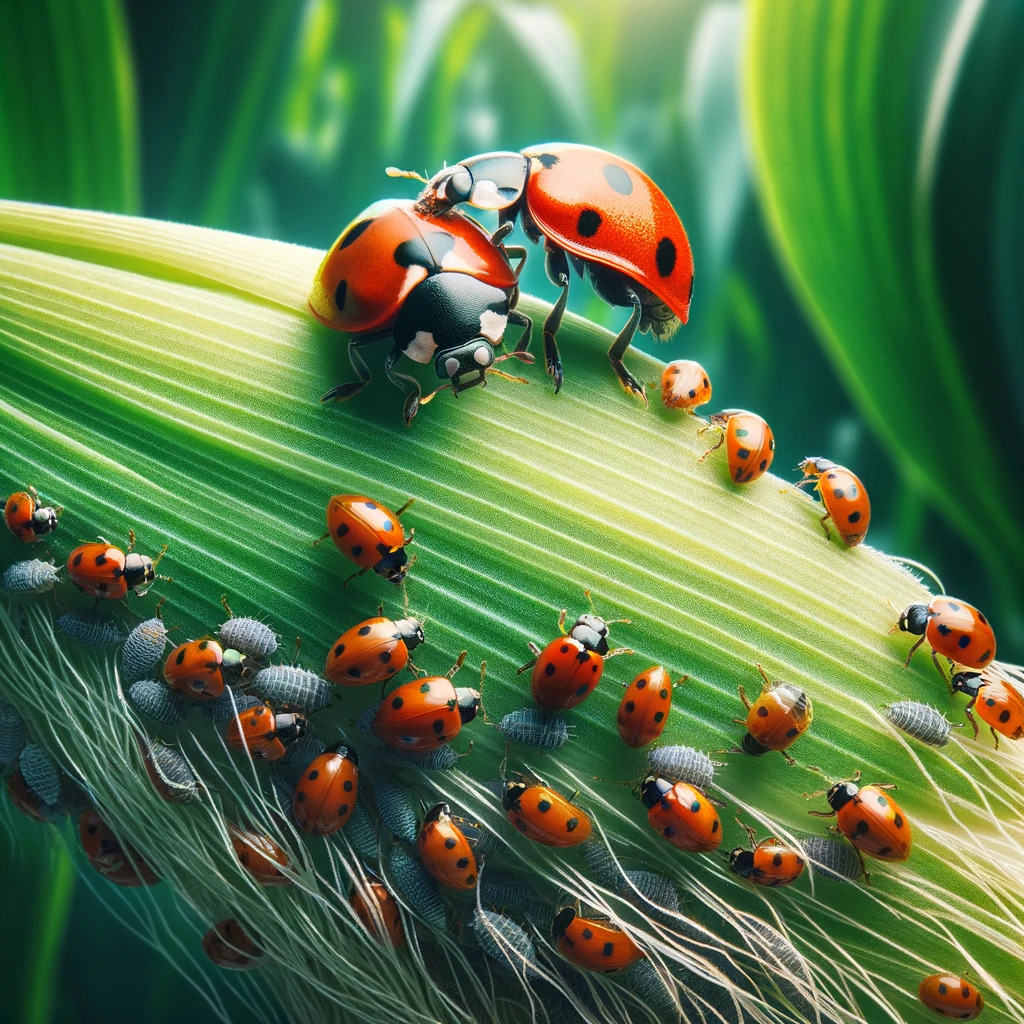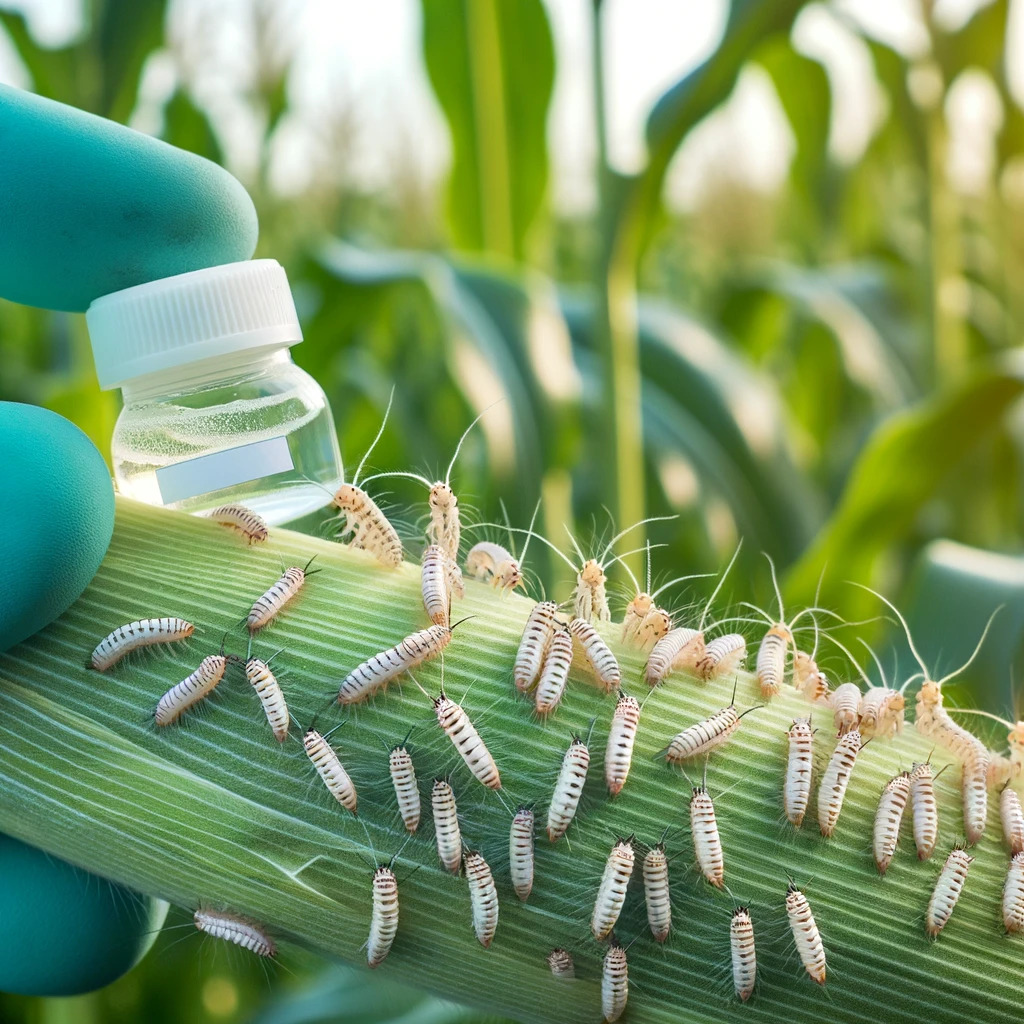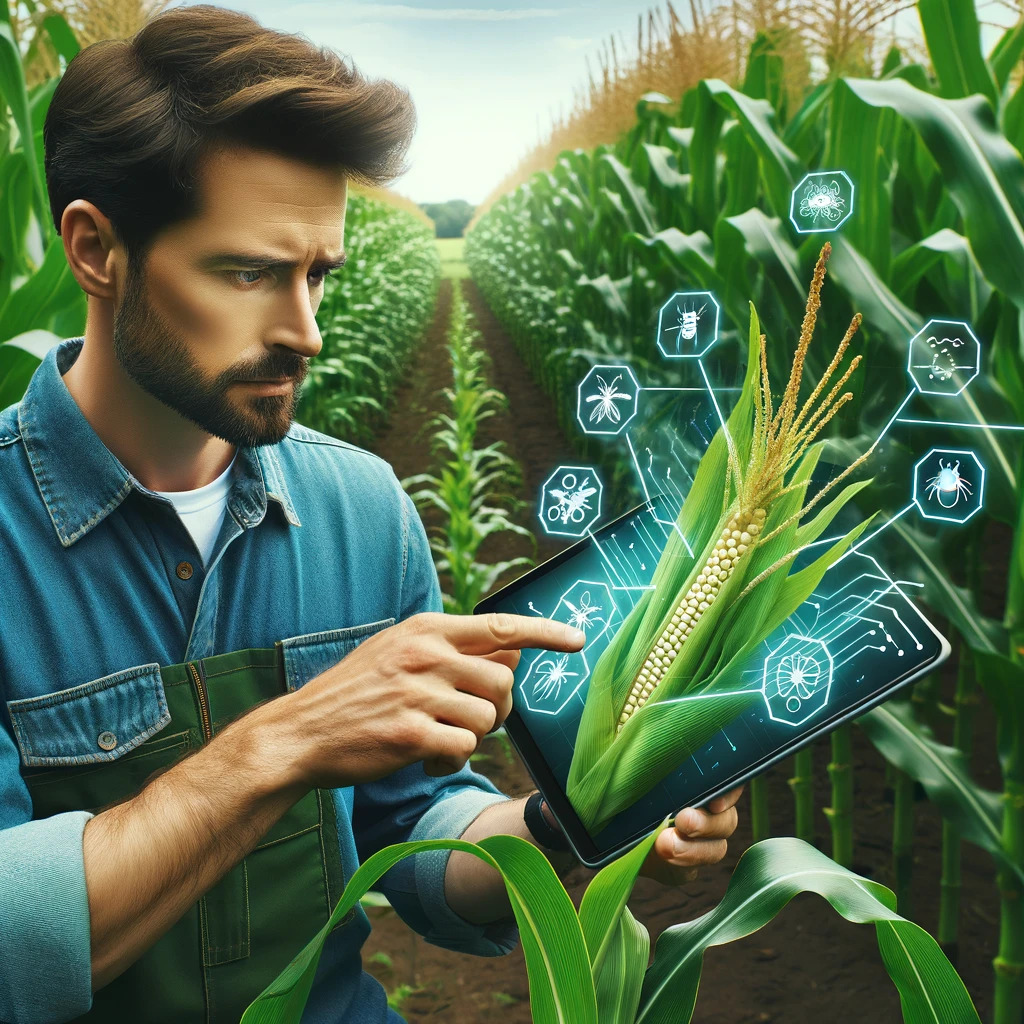The Rebirth of Natural Guardians in Corn Fields
Biological control has emerged as a revolutionary strategy in organic agriculture, especially in corn cultivation. This technique harnesses nature to maintain ecological balance, using natural predators and parasitoids to effectively combat pests. In this exploration, we will detail how this tactic has become an essential component for sustainable pest management in organic corn, relying on technical examples and case studies.
Integration of Natural Predators: The Living Force Against Pests
Ladybugs and Other Allies in the Fight
Ladybugs, renowned for their ability to devour aphids, are a classic example of biological control in action. These small but powerful predators can be introduced into corn fields to control aphid populations, a common pest in this crop. We will detail how farmers can integrate ladybugs into their agricultural practices, including release and maintenance techniques.

Use of Parasitoids: A Precise Solution for Pest Control
Trichogramma, the Microscopic Hero
Parasitoids like Trichogramma are tiny but effective in controlling various corn-damaging caterpillars. These organisms lay their eggs inside the eggs of pests, preventing their development. This section will describe how farmers can employ Trichogramma, addressing aspects such as timing and release method.

Integrated Pest Management: Combining Tactics for Maximum Effectiveness
A Multifaceted Strategy for Crop Health
Integrated Pest Management (IPM) combines biological control with other sustainable agricultural practices. This section will explore how IPM can enhance the effectiveness of biological control, including examples of how farmers have integrated these practices to protect their corn crops.

Sowing the Future: Impact and Potential of Biological Control in Organic Agriculture
The use of biological control in organic corn agriculture not only represents an ecologically responsible approach but also demonstrates significant potential for improving sustainability and productivity. By adopting these practices, farmers are contributing to a more balanced and resilient agricultural system.
 AgronoBlog – Agriculture Blog
AgronoBlog – Agriculture Blog 


